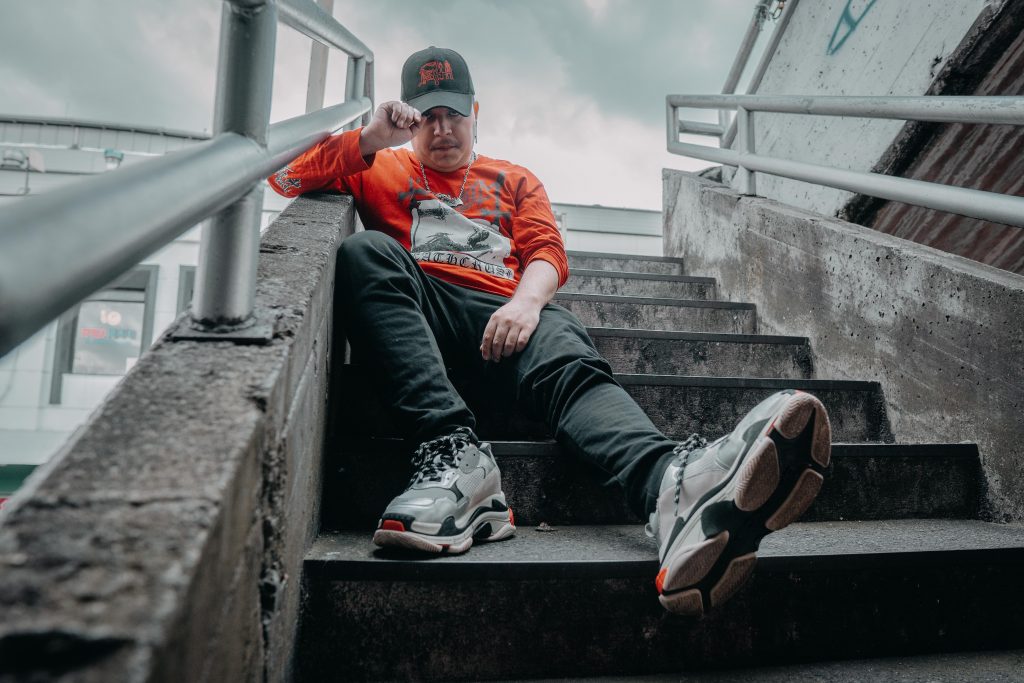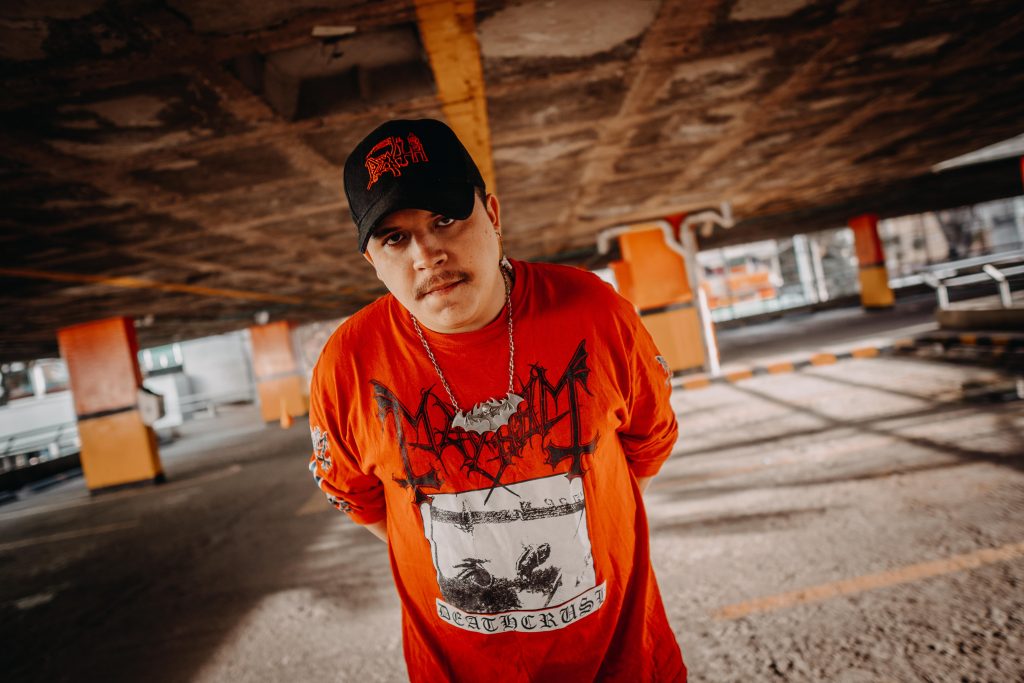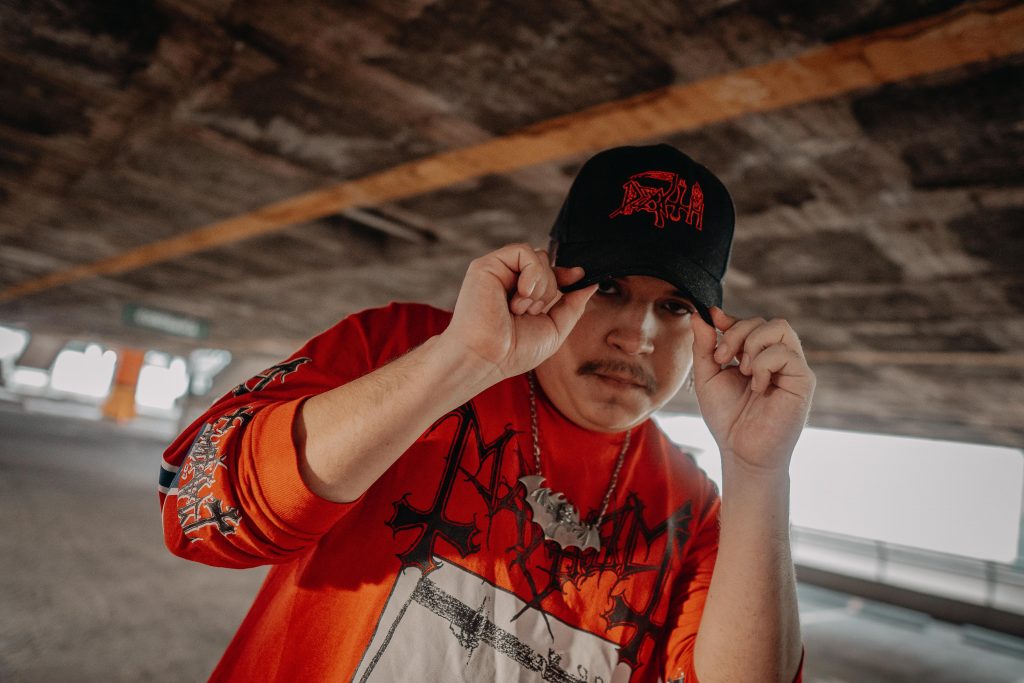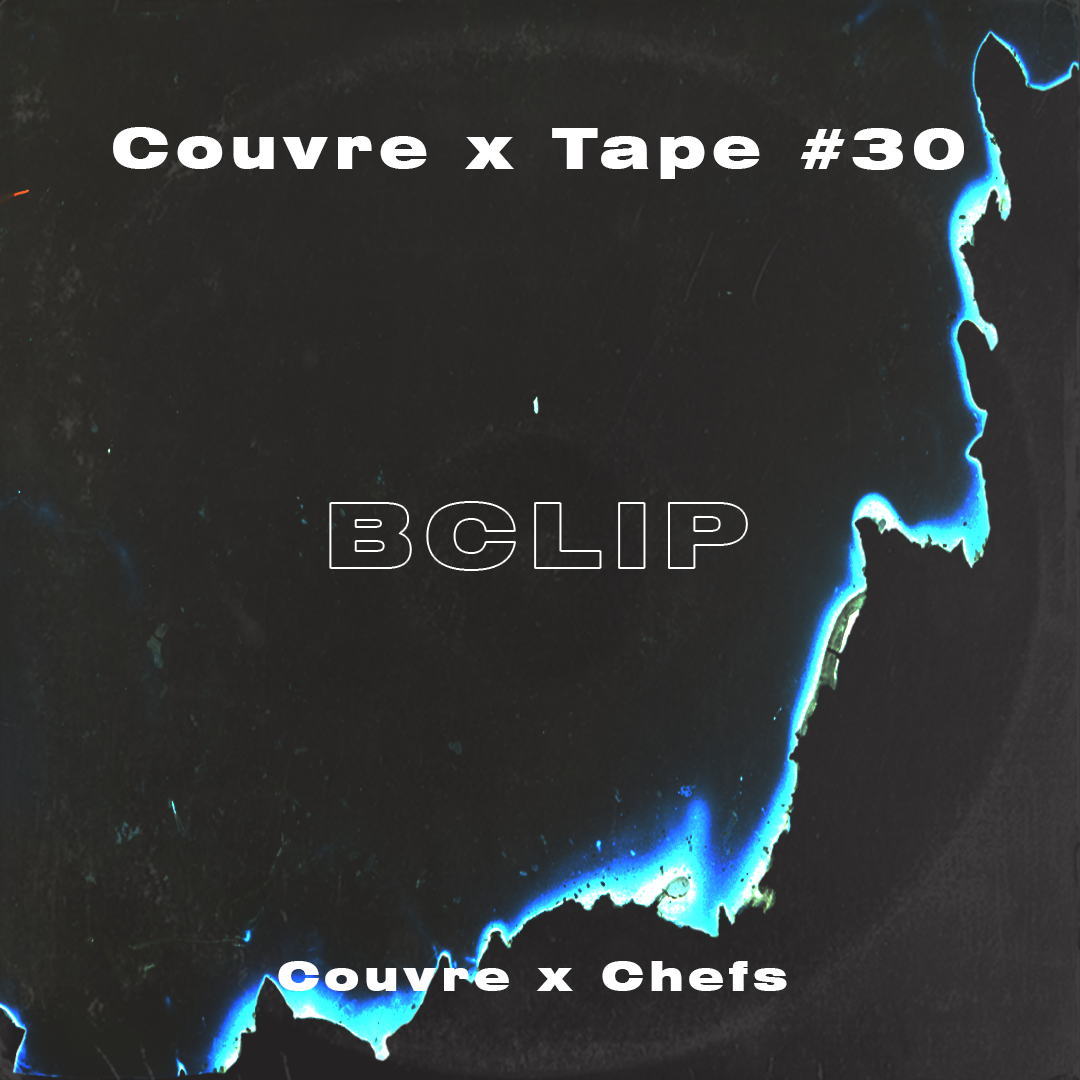
Bclip is a Colombo-Puerto Rican producer, DJ and “ghetto curator” based in Bogotá. At the head of Paria Records, Bclip is also the producer of Alfredo de la Fe and salsa / Latin jazz legend Boom Full Meke.
On the occasion of his European tour which will start at the end of June(all the information at the bottom of the article), he has created a new mix that also marks the resumption of our Couvre x Tapes series, which has been on hold since 2017.
The wide range of Bclip’s influences extends from black metal to champeta, including reggaeton, plena, trapbow, guaracha, carioca funk, makina, changa-tuki, dembow, soukous … without forgetting the capital influence of the picós (Colombian sound system).
Bclip moves to develop a sound beyond the avant-garde and ghetto, the musical exploration is turned toward innovation, without any loss of the essence of barrio.
Decontextualize and reinterpret in order to colonize new spaces via marginalized music of Afro and Latino ghettos, here is Bclip’s trademark.
Thanks to Paria, his prods or his DJ sets, Bclip has the duty to create projects of futuristic ambition based on Caribbean rhythms, in order to fight the “pseudotropical” clichés and stereotypes inherited from neocolonialist.
Interview: Bclip
CxC | Who is Bclip and what is Paria?
In 2001, I started to produce and organize parties of underground urban music in Barranquilla, with homemade material, we were looking for a very loud and harsh sound with pretty good quality. The people who attended these parties said that the pieces that I always put glutted [clipeaban] (Author’s note, in Spanish “clipeaban”: refers to the saturation, the distortion effect caused by too much bass), were always in the red and sounded louder than the others. All thanks to the famous “megabass” effect of Sony Discman… Despite this, the public judged that it sounded good, that’s where the name came from, the clipeo (Author’s note, in English: saturation)the technology of these modular sound equipment. The “B” is inherited from the b-side tracks, which are oddly produced and that makes this characteristic clip sound.
En el 2001 empiezo producir y a hacer fiestas de musica urbana underground en barranquilla , con equipos caseros, buscabamos llegar a un sonido muy fuerte y estridente con una calidad medianamente decente. los asistentes a estas bacanales solian decir que los singles que yo ponia siempre clipeaban ,que nunca bajaban del rojo, sonando mas fuerte que otros, todo gracias al famoso efecto “megabass” de los discman de sony, pese a esto, el publico consideraba que sonaba bien… y de ahi empezo el nombre, del clipeo de aquellos equipos de sonido modulares. Bclip ,el de los b sides, el de los singles raros que siempre clipeaban.
Later, while working on a project, people of the island San Andres, urban music singers with whom I worked, thought that the b meant bone, brain or blood (Ed. original, Bclip says in English “bones, brain or blood”). But “b” refers to the “b-side” of these fruitloops beats that sounded unusual and “clipped” people’s bowels as they smoked …
Tiempo despues durante una traba, unos isleños , cantantes de musica urbana con quienes trabajaba pensaron que la b significaba, bones , brain or blood, siendo la b , de b sides por aquellos beats de frutyloops
que sonaban poco comunes y hacian clipear mientras fumaban, alguna parte de sus entrañas
Since then I have been knighted ass a Bclip ambassador by the street. In this context, I have always been an outcast, a paria, that of odd music.
This is what led me a few years ago to launch Paria Records, a label and collective whose objective is to give access and connect the ghetto sound with other contexts and thus shine a light on this scene who is born in the neighbourhoods.
Y bueno desde ahi quede bautizado por la calle como Bclip. en dicho contexto siempre fui el paria , el del sonido raro , eso hizo que hace ya un par de años fundara paria, un sello y colectivo que busca dar acceso y conectar con la grasa del ghetto con otros contextos y exponer el avantgarde que se gesta en el barrio.

What have been the highlights of your career so far?
I worked with artists like De La Ghetto or the late Mexicano 777. I was able to create, on the basis of African influences and the current sound of Barranquilla sound systems, a new urban-futuristic 6/8 genre called Warapo.
I experimented with salsa and Latin jazz with legendary artists such as Alfredo de la Fe and Eddie Palmieri. Once I even produced black metal. I worked with Afterclvb and labels like NAAFI on some productions …
In short, I think I have been lucky enough to be able to explore and produce things that are very different, but always innovative, always with the desire to get out of the cliché “palms and coconuts”, and to move away from what people say we must be because we are Latinos or Caribbean.
He trabajado con artistas como De La Ghetto o el difunto Mexicano 777, pude crear basado en influencias africanas y el sonido actual de los soundsytem en barranquilla, un nuevo genero urbano-futurista en 6/8 llamado warapo.
He hecho experimentaciones con la salsa y el latin jazz con artistas leyenda como alfredo de la fe o eddie palmieri, una vez produje algo de black metal, he trabajado con afterclvb o sellos amigos como NAAFI en algunas producciones .
En fin , creo que he sido afortunado en poder explorar y producir cosas tan dispares, pero siempre todo ha sido muy freshless por fuera del cliche de palmenras y cocos , tratando siempre de alejarme de lo que supestamente debemos ser los latinos o caribes.
How do you think your music is perceived outside the borders of Colombia? Latin America?
I think people like it. I see a lot of potential in scenes like the Mexicans, the Dominican Republic and Brazil. I aspire to bring the sound of popular neighbourhoods to very distant places, connect them and try to infiltrate new contexts. I believe that the strength of new genres available and the new faces deserve to be exposed.
Creo que les gusta, veo mucho potencial en escenas como la mexicana, la dominicana y la brasilera, aspiro a llevar los sonidos de los barrios a lugares muy lejanos, conectarlos entre ellos y buscar infiltrar nuevos contextos considero que lo propositivo y novedoso del pueblo merece acceso y exposicion.

Conversely, how is your musical project perceived in Colombia? Where are you playing? What is your audience?
I play and produce music on both sides: both very mainstream and very underground. I recently left the festivals and gigantic scenes where I had previously played to devote myself to the street, to offer a more dense and proactive sound that still struggles to stand out.
Toco y produzco musica en ambos bandos, muy mainstream y muy underground a la vez, ultimamente dejando de lado festivales y escenarios masivos en los que ya habia tocado anteriormente para dedicarme a la calle, a proponer un sonido mas denso y propositivo al que aun le cuesta sobresalir.
There is a neocolonialist spirit that submits everything and all those who come from abroad, if a stranger does it here, it is validated.
In Colombia, there is too much potential, but still, too much fear to explore or not to be politically correct or accepted around the world.
The folkloric or neofolcloric groups are present and very good but they are only part of what we have as a country. The future must change, there must be an update, a change. I think that as a country we have to make other things visible, other genres that are not more chauvinistic or imported from abroad. Places like Videoclub and projects like Chupame El Dedo, House of Tupamaras, NON or Putivuelta are my peers, and they are not afraid to explore either.
Existe un espiritu neocolonista que licita todo y a todo aquel que viene de afuera, si un extrajero lo hace ahi es cuando es reconocido como algo valido.
En colombia hay demasidado potencial pero aun demasiado miedo por explorar o no ser politicamente correctos o mundialmente aceptados.
Las bandas folcloricas o neofolcloricas posicionadas existen y son muy buenas pero son solo una parte de lo que como pais tenemos, el futuro necesita un cambio, un update pienso que como pais hay que visibilizar otras cosas, otras corrientes que no sean mas chovinistas o en aduladoras de lo foraneo lugares como videoclub y proyectos chupame el dedo, house of tupamaras, non o putivuelta, son mis congeneres, y tampoco tienen miedo de explorar.
What do you mean by “pseudo-tropical” clichés and why do you think they exist and subsist?
I believe that the world is forcing third world countries to be either exotic or folkloric. We were dragged down to alternative scenes by dictatorial mandate and seen only as those who retain their roots, but not those who in coherence with them, manage to explore without fear of proposing something new.
The explicit, the rude and the street needs more attention, because it is sad that a lot of what should normally have an impact is still a light, bleached version of it and far from what’s really happening in the ghetto.
Creo que el mundo condiciona a los paises tercermundistas a ser unicamente exoticos o folcloricos, se nos ha impuesto a las escenas alternativas por mandato dictatorial ser unicamete quienes preserven sus raices, mas no quienes en coherencia con ellas puedan explorar sin miedo a proponer hacia el futuro.
Lo explicito lo burdo y lo callejero necesita mas atencion, porque es triste que mucho de lo que normalmente logra impactar sea una version refinada y blanqueada y poco cercana a lo que en realidad sucede en el ghetto.
What do you expect from this European tour?
Open the field of possibilities. Connect and build new bridges for future artists of the label, consider collaborations and featuring from all walks of life.
Abrir campo. Conectar y construir nuevos puentes, para los que pronto vienen,artistas nuevos del sello, y propuestas y featurings de todo tipo.
Bclip on tour in Europe this summer
Booking Germany:
Luis Antonio Delgado
T: +57 3053338864 (WhatsApp)
T: +49 1635039408
Booking Switzerland:
Rodrigo Rodriguez
rodrymusic@gmail.com
T: +41 788833196
Rest of Europe: contact@couvrexchefs.com

